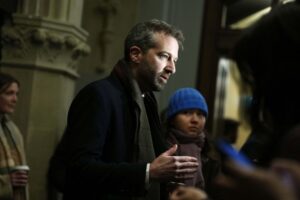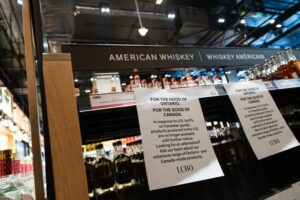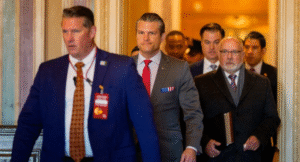
Canadians are headed to the polls after Prime Minister Justin Trudeau called a federal election for next month.
The Prime Minister arrived at Rideau Hall on Sunday morning to visit with Governor General Mary Simon, kickstarting a 36 day campaign that will culminate with a vote on September 20.
Trudeau is opting for one of the shortest election campaigns, less than two years since the Liberals were reduced to a minority government.
Speaking after meeting with Simon, Trudeau said that his government did not expect COVID-19 but it focused on supporting Canadians and small businesses throughout the pandemic, delivering the Canada Emergency Response Benefit and wage subsidy for those hard-hit by the crisis.
Canadians need to choose how the country finishes the fight against COVID-19, he said.
“In this pivotal, consequential moment, who wouldn’t want a say? Who wouldn’t want their chance to decide where our country goes from here?” Trudeau asked.
“As much as we’ve done over the past many, many months, we’ve got a lot of work ahead of us. …You deserve a say, because this is your moment.”
The Liberals have also maintained that a minority Parliament had become toxic and dysfunctional and that they need a strong majority mandate in order to implement the recovery plan.
Opposition parties dismiss these claims, pointing out that the government has not lost any confidence votes, including on its spring budget, and arguing that holding an election during a pandemic is irresponsible and dangerous.
Even so, opposition leaders have been criss-crossing the country making campaign-style announcements in recent weeks.
On Sunday, Conservative Leader Erin O’Toole accused Trudeau of risking the progress that Canada has made on COVID-19. Canadians can finally see their loved ones, friends and neighbours again, and Trudeau shouldn’t risk all their hard work for “political gains,” he said.
At the same time, the Tory leader declined to say whether he would require his candidates to be vaccinated. On the question of mandatory vaccinations in general, he said he respects Canadians’ right to make their own health choices.
He said Trudeau’s government has left too many Canadians struggling to pay the bills or cover the costs of housing, food and heating, and yet the Liberal leader is asking them to reward his party with another four years.
The Conservatives’ recovery plan will ensure the economy is firing on all cylinders and get Canada’s finances under control, O’Toole said, while securing a million new jobs and ensuring more Canadian-made medical supplies.
“Canadians deserve to know what their politicians will deliver. They deserve to know that there’s a plan, and they deserve a government that will keep its word,” O’Toole said.
“Twelve years in the military have taught me to always have a plan. Canada’s Recovery Plan will unite our country and secure the future.”
NDP Leader Jagmeet Singh launched his campaign in Montreal, criticizing Trudeau’s early election call as “selfish.”
The Liberal leader’s decision to call an election two years early, in a pandemic, shows that he doesn’t want to follow through on his promises and Canadians will pay the price, Singh said.
Singh told his supporters he’ll fight for working people to make the ultrarich and big corporations pay their fair share and to build a recovery from the pandemic that works for everyone.
Bloc Quebecois Leader Yves-Francois Blanchet added his voice to the chorus of federal leaders blasting Trudeau for the election call, describing it as very irresponsible and accusing him of acting out of personal ambition.
Green Leader Annamie Paul launched her campaign in the riding of Toronto Centre, where she is hoping to win a seat in the House of Commons. Her speech emphasized the climate crisis and the need for urgent action.
At the time of dissolution, the Liberals have 155 seats, the Conservatives 119, the Bloc Quebecois 32, the NDP 24 and the Greens two. There are also four Independents and one vacancy.
Elections Canada says it is prepared to conduct a safe election during the pandemic, with British Columbia, Saskatchewan, New Brunswick and Newfoundland and Labrador all having successfully held provincial votes in the past two years.
However, Canada’s chief electoral officer Stephane Perrault warns it may take two to five days after election day to determine winners in some tightly-contested ridings due to the sheer increase of mail-in ballots expected this time around. While the agency still expects the majority of Canadians will choose to vote in person, it anticipates upwards of five million Canadians to vote by mail, compared to fewer than 50,000 in the 2019 election.
The extra COVID protocols to safely conduct a campaign is also expected to add millions more to the election bill, which could top $610 million, or $110 million more than it cost to run the last two elections.








